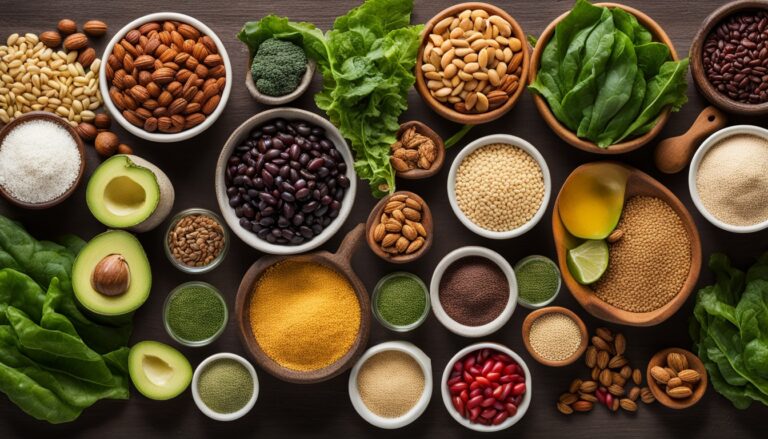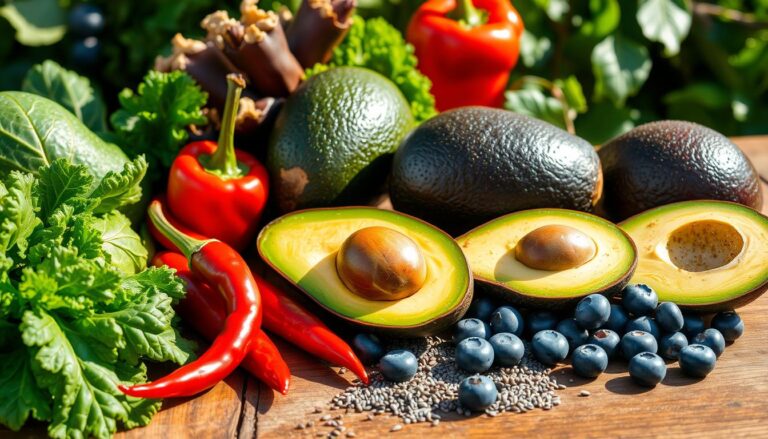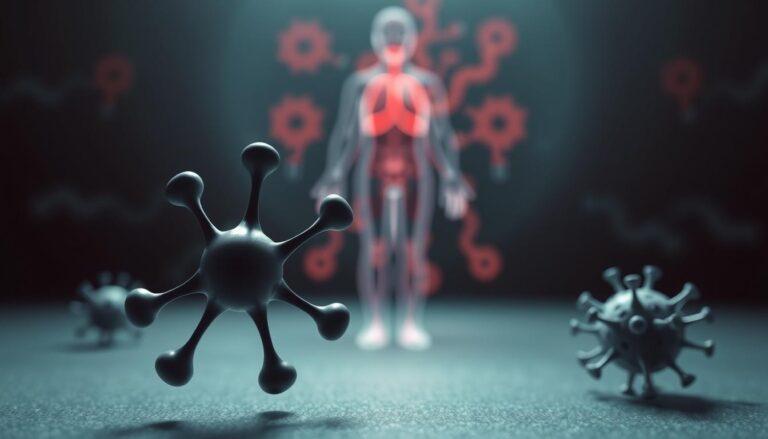Are you a big fan of protein thinking more is always better? Think again.
Protein is key for building and fixing tissues keeping your immune system strong and helping with weight control. But eating too much can be bad for you. What’s the right amount of protein, and how do you know if you’re eating too much?
Having more than 2 grams of protein per kilogram of body weight daily can cause stomach issues dehydration, and kidney problems. The daily protein need is 46 grams for women and 56 grams for men. Too much protein can make you gain weight by adding extra calories and turning some protein into fat.
Key Takeaways
- Eating more than 2 grams of protein per kilogram of body weight per day can cause health issues
- The RDA for protein is 46 grams for women and 56 grams for men
- Excess protein can lead to weight gain, gastrointestinal problems, and kidney issues
- High-protein diets may increase the risk of depression and anxiety
- Staying within the recommended protein intake is crucial for overall health
How Much Protein Do You Really Need?
The amount of protein you should eat daily changes based on your health and how active you are. Adults need 46 grams of protein if you’re a woman and 56 grams if you’re a man. But, your body might need more or less protein depending on your age, fitness goals, and health.
Understanding Recommended Dietary Allowance RDA
The RDA is the lowest amount of protein most people need to stay healthy. Healthy adults should eat between 0.8 grams of protein per kilogram of weight and just under 1 gram per pound. But don’t eat more than 2 grams per kilogram of body weight2.
Factors Affecting Protein Requirements
Many things can change how much protein you need every day. For example, pregnant women might need up to 1.1 grams of protein per kilogram in the last two trimesters.
Active people and athletes might need 1.2 to 2 grams of protein per kilogram to help muscles recover and grow. Older adults and those with sarcopenia muscle loss as you age might need more protein 1.2-1.6 grams per kilogram to keep muscle mass.

What’s the best protein intake for you depends on your own needs and goals. Always talk to a healthcare expert to find out how much protein you should eat.
Bad Breath A Sign of Ketosis
If you’re on a keto or high protein diet, you might notice your breath smells fruity or like acetone. This is often called keto breath or high-protein diet breath. It shows your body is burning fat for energy a state called ketosis.
Ketosis happens when your body uses fat for energy because it doesn’t have enough carbs. This process creates ketones including acetone, which can make your breath smell bad.
Even though the smell isn’t nice it means your diet is working. The keto diet and similar plans aim to burn fat for energy. So the bad breath is a sign your body is doing its job.
To lessen keto breath, try drinking more water to get rid of ketones through your urine. Also, slightly upping your carb intake might help. But don’t change too much to avoid leaving ketosis.

Read more: Low Carb or Low Fat What Works Best?
Keto breath is a common side effect of being in ketosis. It’s not the best smell, but it shows your body is switching to fat for energy. This is a main goal for those on a high-protein diet or keto diet.
Frequent Urination and Dehydration
Have you noticed you’re going to the bathroom more often after eating more protein? That’s because your kidneys are working harder to break down the extra protein. This extra urine can make you dehydrated, so drinking plenty of water is key if you’re eating a lot of protein.
Your kidneys can only handle so much protein at a time. The waste from breaking down protein can build up, making you feel like you need to go to the bathroom a lot. Mayo Clinic says you should drink about 64 ounces of fluids daily to balance out the extra urine from eating a lot of protein.
Not drinking enough water from a high-protein diet can make you feel very thirsty tired dizzy and confused. If you don’t drink enough water, you could even harm your kidneys or make kidney diseases worse.
| Condition | Prevalence |
|---|---|
| Proteinuria | Affects up to a third of the world’s population |
| Proteinuria in the US | About 7% of Americans have proteinuria |
| Dehydration-Induced Proteinuria | Dehydration can lead to proteinuria |
Not drinking enough water can stress or damage your kidneys letting protein get into your urine. This kind of proteinuria is usually mild and can be fixed by drinking more water. But not drinking enough water for a long time can also make you more likely to get kidney stones.
Kidneys Working Harder to Metabolize Excess Protein
Eating more protein than you need makes your kidneys work harder to filter and get rid of the extra. This extra work can strain your kidneys and lead to kidney disease and high blood urea nitrogen levels.
High protein diets, especially those with a lot of animal proteins like red meat and eggs can increase your risk of cancer and heart disease. It’s important to choose your protein sources wisely to stay healthy.

The recommended amount of protein is 0.8 grams per kilogram of body weight but athletes might need more. Eating too much protein can take away from other important nutrients and increase the risks of high protein intake.
To eat healthy on a high-protein diet, try to eat less red meat and choose leaner options like poultry fish, eggs and beans. When picking animal proteins go for quality over quantity. Choose grass-fed and pasture raised options for healthier fats and fewer toxins.
Proper hydration is key when following a high-protein diet to prevent dehydration and support overall kidney function.
Unintended Weight Gain
Eating a high-protein diet might lead to weight gain not muscle gain as planned. This happens because some protein sources have a lot of calories and fat. Also your body can turn extra protein into sugar which turns into fat.
Excess Calories and Fat from Protein Sources
Too much protein can cause weight gain. The kind of protein you eat matters too. Foods like red meat and full fat dairy are high in saturated fat. This can increase your calorie intake and lead to weight gain.
Conversion of Excess Protein to Sugar
Your body can only store so much protein. If you eat more than you need, it turns the extra into sugar. This sugar gets stored as fat, causing unwanted weight gain. This is a big issue for those on a high-protein diet without watching their calories.
To stay at a healthy weight on a high-protein diet choose nutrient-dense, whole foods for protein. Also exercise regularly and manage stress to help with weight control.
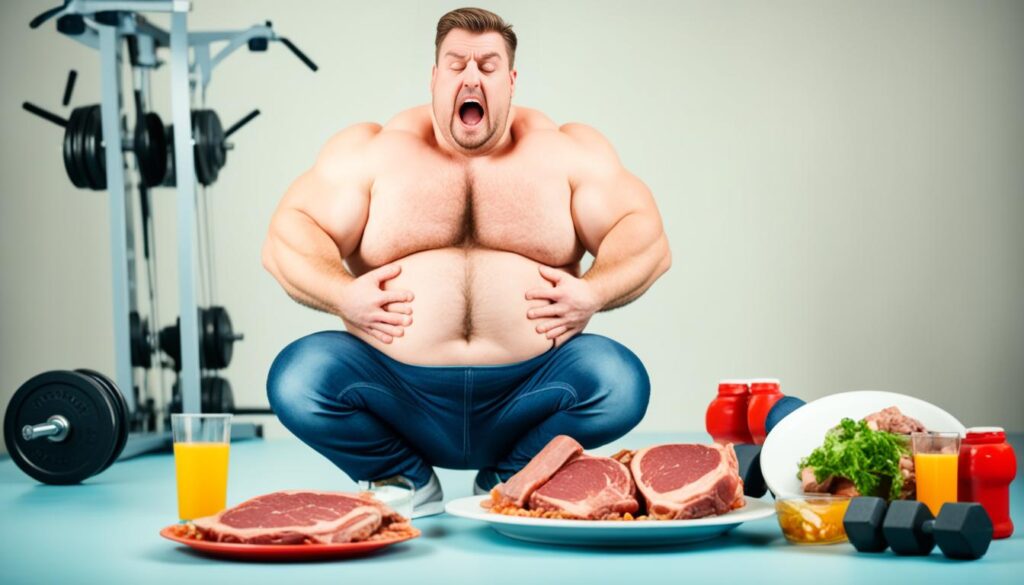
Read more: Strategies for a Healthy Weight Nutrition Tips
Eating more protein than your body can handle can lead to weight gain in a few ways that aren’t related to putting on muscle.
7 Signs You’re Eating Too Much Protein
Protein is key for our health, but too much can cause problems. If you notice these symptoms, you might be eating too much protein.
- Bad Breath Too much protein can lead to keto breath a bad smell.
- Frequent Urination and Dehydration Your kidneys work hard to get rid of extra protein, causing more trips to the bathroom and dehydration.
- Unintended Weight Gain: Too much protein can make you gain weight even if you’re not eating more. This happens because your body stores extra calories as fat.
- Digestive Issues A diet high in protein but low in fiber can cause constipation, nausea, and diarrhea. This is because your body has a hard time breaking down the protein.
- Kidney and Liver Problems High protein levels can strain your kidneys and liver. This might lead to kidney stones and liver problems.
- Cardiovascular Concerns Eating too much protein from certain foods, like red meat, can increase heart disease and cancer risk.
- Nutrient Deficiencies A diet too focused on protein can lead to nutrient shortages and health issues.
If you see these signs check your protein intake and adjust it. Talk to a healthcare expert or dietitian for a plan that’s right for you.

Read more: Debunking the Protein Hype How Much Is Too Much?
Finding the right balance with protein is important. Pay attention to how much you eat and listen to your body. This way you can make sure your protein helps your health and fitness goals.
Digestive Issues Constipation Nausea and Diarrhea
Following a high-protein diet can sometimes cause stomach troubles. Eating a lot of protein from animals and not enough fiber can lead to constipation, nausea, and diarrhea.
Some proteins like meat, are hard for the body to digest. Also, too many protein supplements, shakes, or bars can upset your stomach. This is because they might have sugar alcohols.
Low Fiber High Protein Diets
A diet high in protein and low in fiber can upset your stomach. Without enough fiber, your body may not process the protein well. This can cause constipation bloating, and discomfort. Eating more fiber-rich plants can help balance your diet and support your digestion.
Difficulty Digesting Certain Protein Sources
Not all proteins are easy to digest. Some people find it hard to digest whole nuts if they don’t chew them well. Knowing what you can and can’t digest can help you avoid stomach problems.
Staying on a diet with plenty of fiber and watching how your body reacts to different proteins can help prevent and manage stomach issues from a high-protein diet.
Potential Kidney and Liver Problems
Eating a lot of protein can strain your kidneys and liver. If you have kidney or liver disease your organs might struggle to handle the extra protein. Studies show that high-protein diets can make chronic kidney disease worse and raise the risk of kidney issues.
Burden on Organs from Breaking Down Excess Protein
Your kidneys and liver are key in breaking down and getting rid of protein byproducts. If you eat more protein than you need they have to work harder. This can hurt their function over time.
Ammonia Buildup in Impaired Kidney or Liver Function
A high protein diet can lead to too much ammonia in your body. Normally your kidneys and liver get rid of ammonia. But if they’re not working right ammonia can build up and cause serious problems. This can lead to headaches fatigue confusion, and even coma.
| Organ | Impact of High Protein Diet |
|---|---|
| Kidneys | Increased workload, potential for damage and reduced function over time |
| Liver | Increased burden in metabolizing and removing excess protein byproducts, risk of ammonia toxicity |
It’s important to think about your own health and needs when deciding how much protein to eat. Talking to a healthcare professional can help you find the right balance for your health.
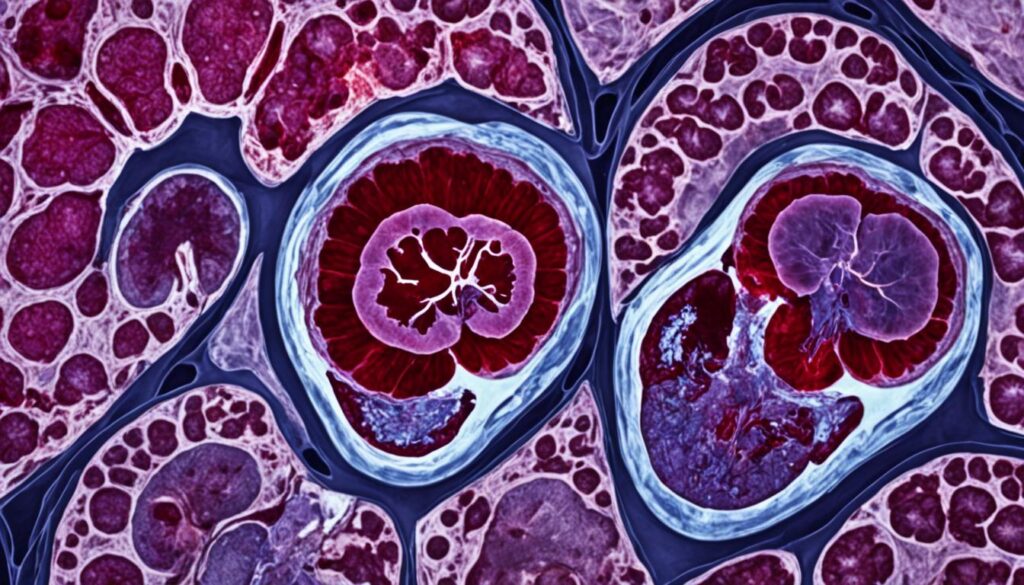
Understanding dietary phosphorus sources is crucial in treating patients with chronic kidney disease.
Cardiovascular Concerns
Protein and heart health are closely linked. The type of protein you eat is very important. Plant-based proteins like legumes, nuts, seeds, and seafood help your heart. But, animal-based proteins from red meat processed meats, and high-fat dairy can increase heart disease risk.
Eating too much protein, from any source, can cause issues. These include bone loss, kidney stones, higher cancer risks, and even heart disease. It’s best to aim for 10% to 35% of your daily calories from protein. A gram of protein has about 4 calories.
Benefits of Plant Based Protein Sources
Plant-based proteins like legumes nuts, and seeds are great for your heart. They’re also full of fiber, vitamins, and minerals that boost your health. Seafood, such as fish and shellfish is another good choice. It gives you heart-healthy omega-3 fatty acids.
Risks of Animal Based Protein Sources
On the other hand, eating a lot of red or processed meat can increase your risk of colorectal cancer and heart problems. Symptoms of heart disease include chest pain and can lead to serious conditions. To avoid these issues choose healthier protein sources and balance your meals with fiber and unsaturated fats.
Protein is key for health, but too much of the wrong kind can be bad. Focus on eating a mix of plant-based and seafood proteins. Limit your intake of high-fat animal-based proteins.
| Protein Source | Effect on Cardiovascular Health |
|---|---|
| Plant-based legumes, nuts, seeds, seafood | Beneficial for heart health |
| Animal-based red meat, processed meat, high-fat dairy | Increased risk of heart disease |
Consuming too much protein regardless of the source can also lead to problems such as bone loss kidney stones increased cancer risks, and even coronary heart disease.
To keep your heart healthy pay attention to the protein you eat. Aim for a diet rich in plant-based and seafood proteins over high-fat, animal-based ones.
Conclusion
A balanced protein intake is key for good health. But moderation is key. Eating too much protein can cause problems as studies show., and.
Your body can only use a certain amount of protein. The extra can turn into sugar or fat possibly causing weight gain. By focusing too much on protein, you might miss out on important nutrients like fiber and carbs. These are vital for a balanced diet.
So, the main message is avoid excessive protein and aim for a healthy balanced diet. Doing this will help you avoid the downsides of eating too much protein. You’ll enjoy the benefits of a balanced nutrition approach.
